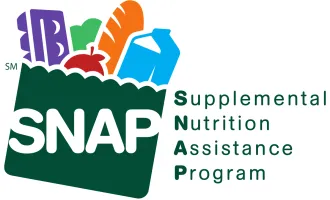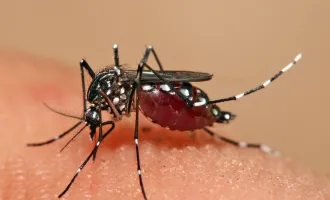SACNAS Opens Chapter at UCSF : Organization supports Chicanos, Native Americans in science
A group of dedicated students and postdocs has created a new UCSF chapter of the Society for the Advancement of Chicanos and Native Americans in Science (SACNAS).
“Like the national organization, SACNAS at UCSF is committed to preparing and empowering underrepresented minorities to become leaders who will have a positive impact in our society,” said Dr. Maria Mouchess, an Institutional Research and Academic Development Scholars in Science (ISIS) postdoctoral fellow in the Anderson Lab in the Diabetes Center at UCSF and one of the chapter’s founding members. “The chapter has the potential to bring together people throughout the University who value diversity in the sciences.”
The group is organizing academic, professional, community service and social activities to create an enriched environment and support network that will serve both its members and the UCSF community as a whole.
As an undergraduate student, Mouchess attended the University of California, Los Angeles, where she first became involved with SACNAS and attended the organization’s national conference in 2000. As a graduate student at UC Berkeley and member of the new SACNAS chapter there, she saw some of the initial challenges the group faced but also benefited greatly from the group’s sense of community. This experience made her uniquely well prepared to help start the UCSF chapter.
“A key element in getting the SACNAS chapter at UCSF started has been all the support from the Graduate Division, as well as many other campus leaders,” she said.
Dr. Joseph Castro, Vice Chancellor of Student Academic Affairs, who was also serving Interim Dean of the Graduate Division at the time the UCSF chapter was forming, has provided official support for SACNAS at UCSF as its chapter advisor. “In the spirit of Chancellor Desmond-Hellmann’s call for creating a campus culture where everyone can thrive, I wanted our UCSF graduate students and postdoctoral researchers to benefit from SACNAS’ incredible array of resources and support,” said Castro.
SACNAS measures its many successes by head counts — how many people attend the annual SACNAS conference (more than 3,500), how many students make presentations there, and its growing membership. Evidence of the positive impact of the organization on individuals is harder to measure, but not hard to find. UCSF postdoc Gabriel Gonzalez-Roybal posted this on his Facebook page after the recent SACNAS conference: “First conference in a long time that I left feeling like I knew where I was headed and appreciated where I began.”
Another member posted, “SACNAS has been my support and inspiration. This organization has given me a sense of belonging.”
“When I attended the national meeting in 2010, I connected with people who had similar research interests to my own, but who were at the graduate student, postdoc or even PI level,” said Raul Torres, a second-year graduate student in the Biomedical Sciences program. “They gave me wonderful advice on how to pick the right graduate school and what skills to learn to be a good scientist. It is my goal to do the same for the current undergraduates.”
The UCSF SACNAS chapter is actively recruiting members and hopes that faculty and staff will also get involved by spreading the word to students and postdocs on campus and by attending the SACNAS conference each year.
“The atmosphere at the annual SACNAS conference is always energized and inspirational. Our outreach there has been an effective way to attract the interest of promising students and potential postdocs who we might not otherwise meet,” said Dr. Christine Des Jarlais, Assistant Dean for Postdoctoral Affairs and Career Development.
In its short existence, the UCSF SACNAS chapter has already met several times, and had a summer barbecue with chapters from UC Davis, UC Berkeley and City College of San Francisco. The group also had an opportunity to interact with and mentor undergraduates participating in the Summer Research Training Program, an outreach project of the Graduate Division.
“I just became involved in SACNAS this year, but in this short time, I definitely feel more connected to the scientific community,” said Angela Castanieto, a graduate student in UCSF’s interdisciplinary Tetrad program. “Through our meetings, I’ve had the chance to be mentored by postdocs, and have already had many opportunities to network with other students and professionals.”
The group’s first major event will be a kick-off celebration on Tuesday, Oct. 30 from 5-7 p.m. featuring Dr. Tina Garza, an immunologist and the new SACNAS national executive director, who will speak to the group about the influence SACNAS has had on her scientific career. Anyone interested in the group’s activities is welcome. Drinks and food will be provided at this free event, which will be held in Genentech Hall, Room N114, at the Mission Bay campus. To attend, please RSVP to: sacnasatucsf@gmail.com.
URLS:
SACNAS at UCSF website: http://rco.ucsf.edu/index.php/SACNAS
SACNAS National Organization website: http://sacnas.org/


